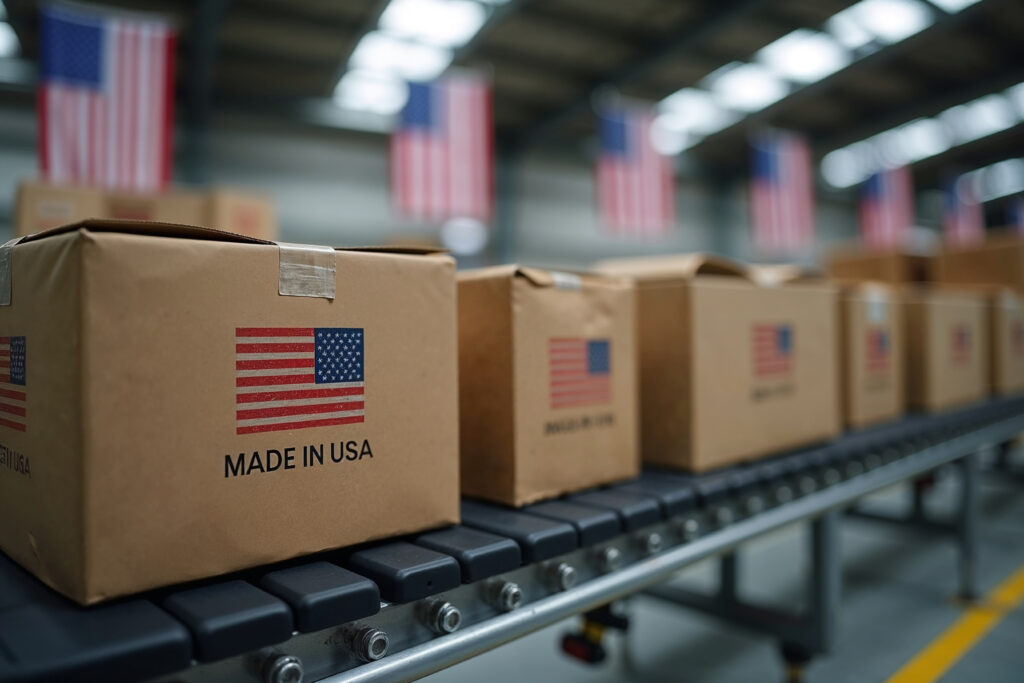Nearshore News: Supreme Court Declines to Fast-Track Tariff Challenge, Chip Waivers Under Review, and Wedding Dresses Face Rising Costs

The Supreme Court’s refusal to fast-track a challenge to President Trump’s tariffs keeps businesses waiting for clarity, while potential export restrictions could complicate ties with key tech allies. Mexico, meanwhile, could be positioning itself as a critical partner in reshaped supply chains, even as niche sectors — from semiconductors to wedding dresses — scramble to adapt to new cost pressures.
Nearshore News Summary:
- The U.S. Supreme Court has rejected the request from two toy companies to fast-track their legal challenge to President Trump’s tariffs (CNBC)
- The U.S. government is considering revoking key waivers that currently allow Samsung, SK Hynix, and TSMC to ship U.S.-made semiconductor equipment to their factories in China without individual licenses. (WSJ)
- Despite rising tariffs and shifting policies, Mexico can still benefit by positioning itself as a complementary partner to the U.S. - displacing China in supply chains, boosting USMCA compliance, and expanding investment in strategic industries. (CSIS)
- U.S. tariffs on Chinese goods are creating new challenges for the wedding industry, as 90% of wedding dresses sold in the U.S. are made in China (NYT)
Supreme Court rejects fast track of Trump tariff challenge by toy companies
Published: June 20, 2025
Source: CNBC
The U.S. Supreme Court has rejected a request from two toy companies to fast-track their legal challenge to President Trump’s tariffs, meaning the administration has more time to file its response while the case continues through normal legal channels.
Key points:
- The Legal Argument: Learning Resources and hand2mind contend that President Trump exceeded his authority under the International Emergency Economic Powers Act (IEEPA) by imposing tariffs without congressional approval.
- Request for Fast-Track Denied: The companies asked the Supreme Court to skip the appeals process due to the nationwide economic impact, but the Court declined, opting for the normal legal timeline.
- Administration Response Timeline: The Supreme Court’s decision grants the Trump administration the usual 30-day period to file its formal response to the challenge.
- Lower Court Rulings: While the U.S. Court of International Trade temporarily blocked the tariffs last month, a federal appeals court subsequently allowed them to remain in place while legal arguments continue.
U.S. Prepares Action Targeting Allies’ Chip Plants in China
Published: June 20, 2025
Source: WSJ
The U.S. government is considering revoking key waivers that currently allow South Korea’s Samsung, SK Hynix, and Taiwan’s TSMC to ship U.S.-made semiconductor equipment to their factories in China without individual licenses. This move, part of the Trump administration’s broader effort to restrict China’s access to critical technology, could disrupt global supply chains and strain relationships with U.S. allies. The decision is not final, as parts of the U.S. government remain divided over the potential consequences.
Key points:
- Potential revocation of chip waivers: The U.S. Commerce Department’s export controls unit is pushing to cancel waivers that let Samsung, SK Hynix, and TSMC supply U.S. chip-making equipment to Chinese factories without case-by-case licenses.
- Aims and risks of the move: Officials frame the plan as creating a licensing system similar to China’s rare-earth export controls rather than escalating trade tensions—but the change could damage diplomatic ties and undercut the fragile U.S.-China trade truce.
- Global supply chain impact: The affected factories in China play a crucial role in producing memory and logic chips for industries like automotive and consumer electronics. Over time, tighter controls could make these plants less viable, disrupting global production.
- Divisions within the U.S. government: While national-security officials support the move to limit China’s tech progress, other officials fear it could harm allies, backfire by strengthening Chinese companies, and complicate trade negotiations with South Korea and Taiwan.
- Industry and diplomatic response: Samsung, SK Hynix, and TSMC are seeking support from their governments to oppose the plan, as they balance pressure from Washington with their need to stay competitive globally—especially as they have pledged major U.S. investments.
Complementarity Mindset: Mexico’s Economy During a U.S. Reshoring Push
Published: June 20, 2025
Source: CSIS (Center for Strategic and International Studies)
As the U.S. pursues reshoring, Mexico faces both challenges and opportunities. Despite rising tariffs and shifting policies, Mexico can still benefit by strategically aligning its industries to complement U.S. reindustrialization efforts, leveraging its lower costs, proximity, and integrated supply chains.
Key points:
- Shift from Nearshoring to Reshoring: The U.S. has replaced its nearshoring rhetoric with a focus on reshoring all types of manufacturing, putting pressure on Mexico to adapt its strategy.
- Tariffs and Trade Dynamics: While Mexico avoided broad reciprocal tariffs, it faces 25% tariffs on non-USMCA-compliant goods and 50% tariffs on steel and aluminum.
- Strategic Role in Key Sectors: Mexico remains crucial to U.S. supply chains in sectors like automotive, semiconductors, pharmaceuticals, critical minerals, and agriculture, areas where its cost advantages and integration can support U.S. industry.
- Complementarity Mindset: Mexico’s opportunity lies in positioning itself as a complementary partner, displacing China in supply chains, increasing USMCA compliance, and expanding investment in strategic industries.
- Path Forward: To succeed, Mexico must balance cooperation on security issues with the U.S., enhance domestic reforms to attract investment, and advocate for new trade provisions (e.g. on semiconductors) to strengthen its role in North American trade.
When Trade Wars Crash the Wedding
Published: June 22, 2025
Source: NYT
U.S. tariffs on Chinese goods are creating new challenges for the wedding industry, particularly for wedding dresses, with David’s Bridal shifting production out of China and using AI and supply chain strategies to keep costs down for brides despite the trade pressures.
Key points:
- Tariffs Impact Wedding Costs: About 90% of wedding dresses sold in the U.S. are made in China, and new tariffs have added pressure to wedding budgets by raising prices on gowns and other wedding-related imports.
- David’s Bridal Shifts Production: To avoid passing on tariff costs to brides, David’s Bridal rapidly moved production from China to Southeast Asia (including Myanmar, Vietnam, and Sri Lanka), aiming to be “tariff resistant.”
- AI and Vertical Integration as Solutions: David’s Bridal leverages AI to design custom laces and predict bridal preferences, while vertical integration allows the company to control costs across its supply chain and avoid price hikes.
- Tariffs Could Disadvantage Competitors: Boutique bridal shops that rely on independent designers and imported gowns may struggle more with rising costs, potentially giving David’s Bridal a competitive edge.
More blogs


